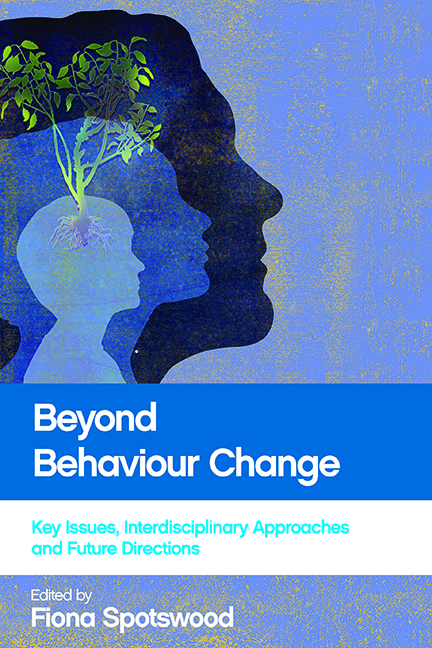seven - Social marketing and multidisciplinary behaviour change
Published online by Cambridge University Press: 01 September 2022
Summary
Introduction
This chapter presents quite a different picture of social marketing from that in Chapter Six, one in which social marketing can make an important and valued contribution to behaviour change and specifically a field of behaviour change that encompasses multidisciplinary thinking. Social marketing is generally poorly understood, with the most powerful elements of social marketing typically overlooked. A broad range of books on social marketing are in print (for example, Eagle et al, 2013; Kubacki and Rundle-Thiele 2013; Brennan et al, 2014; Hastings and Domegan, 2014), yet many myths and misunderstandings continue to prevail today. Thus, this chapter begins by exposing and clearing up the most important myths about social marketing, and then revisits the most powerful concepts that social marketers can bring to the field of behaviour change.
Second, we know that many social change academics express concern at the use of market forces to change behaviours. Some of these critiques include social marketing in their sights and may have some merit. This chapter discusses and responds to these.
Our final aim is perhaps our most important. We look to the future and examine the potential role of social marketing in an integrated multidisciplinary environment. Behaviour change encompasses a wide range of approaches, including education, training, enforcement, infrastructure, technology, urban planning, community development, health promotion and social marketing. Each discipline has evolved with its own unique theories, tools and techniques, and there is a lack of connectedness of behaviour change fields, meaning they are rarely combined. This has not gone unnoticed: The sector has been criticised as operating within silos, and this narrow operating structure may be a contributing factor towards an inability to attain sustainable behaviour change (Rayner and Lang, 2009; Schneider and Stokols, 2009; House of Lords Science and Technology Select Committee, 2011). Nevertheless, academics and professionals within each discipline have tended to persist in using long-standing narrow foci in the belief that their approach may be superior to other behaviour change approaches and/or that a single approach will suffice. Social marketing has also been accused of disciplinary myopia (Brug et al, 2005; Rayner and Lang, 2009), and a key aim in this chapter is to respond to this critique and argue that social marketing is in fact well placed to play an important and perhaps central role in a new multidisciplinary paradigm.
- Type
- Chapter
- Information
- Beyond Behaviour ChangeKey Issues, Interdisciplinary Approaches and Future Directions, pp. 135 - 156Publisher: Bristol University PressPrint publication year: 2016



